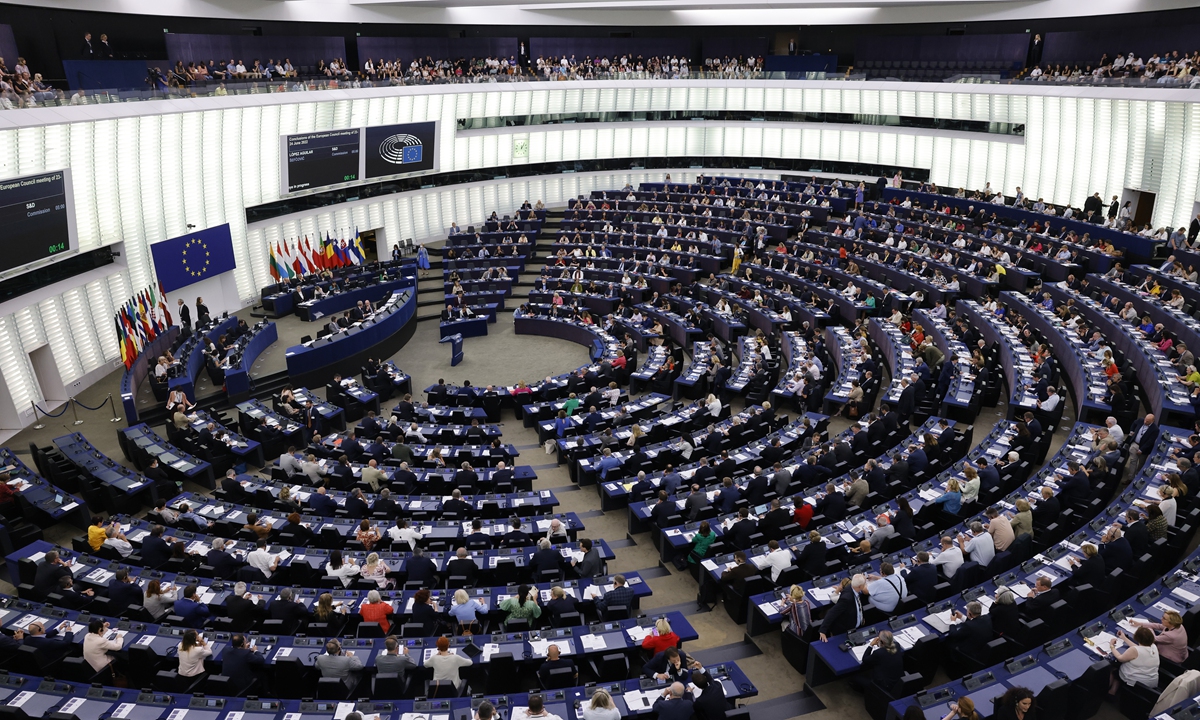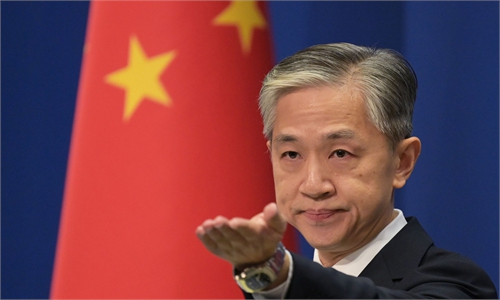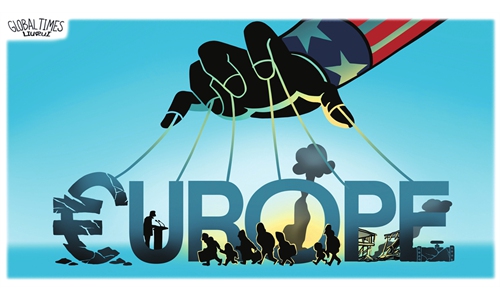European Parliament hollows out one-China commitment; abuse of power jeopardizes bloc interests

European lawmakers gather to vote at the European Parliament on July 6, 2022 in Strasbourg, France. The EU's parliament on July 7 overwhelmingly condemned the end of constitutional protections for abortions in the US. Photo: VCG
The European Parliament, caught in an ongoing corruption scandal, sent its Committee on International Trade (INTA) to visit to the island of Taiwan, which observers interpreted as a dangerous move of escalating Taiwan question at the EU level and hollowing out the one-China principle.
Evidence has been piling up that the European Parliament is increasingly abusing its power, deviating from its original purpose of representing the public, and jeopardizing the true interests of the bloc, analysts have claimed.
The INTA delegation paid a four-day visit to the island of Taiwan starting Monday. Anna-Michelle Asimakopoulou, vice chair of the INTA, claimed EU had recognized mutual benefit of deepening of its trade and investment partnership with Taiwan, as well as the importance of bilateral collaboration on global supply chains in light of Taiwan's leading role in the field of semiconductor technology, a Taiwan-based outlet reported on Thursday.
Cui Hongjian, director of the Department of European Studies at the China Institute of International Studies, told the Global Times on Thursday that such a visit by a European Parliament committee in the name of "investment and trade" is an edge ball - hollowing out EU's commitment concerning Taiwan island while circumventing political topics.
Cui warned the INTA could dominate European Parliament's future agenda in regard to Taiwan, bolstering a dangerous trend of leveraging Taiwan-related affairs up to EU platforms.
Such interactions, economic or cultural while surface actions, always have a political agenda behind - reshaping a "one-China policy" of the EU to challenge the one-China principle, the expert said.
Politics is also severely undermining the China-EU comprehensive investment agreement, which took seven years and 35 rounds of talks. Negotiation was announced to be finished at the end of 2020 by leaders of involving parties. But rectification of the deal was frozen by the European Parliament due to a bilateral spat over China's Xinjiang region.
Reinhard Butikofer, a member of the delegation to Taiwan island, reportedly signaled the investment agreement cannot move forward in this term of the European Parliament which lasts through mid-2024.
President of the European Council Charles Michel stated on December 1 during his visit to China that the EU will work with China to bring forward the process toward the treaty and make supply chains more stable.
There are wide divergences among different EU institutions. The European Council had lots of input during the negotiation and the European Commission also understands great benefits the agreement could bring to the EU, so they are willing to push forward the deal, Cui said, "but given the hardline anti-China lawmakers in the European Parliament and procedural requirement to unfreeze the deal, substantial progress can hardly be made."
Citing the latest corruption scandal, the expert also noted the European Parliament's abuse of power which is jeopardizing the sound functioning of the EU's democracy.
Hungarian Prime Minister Viktor Orban called Wednesday for a restructured European Parliament amid an ongoing corruption case involving a high-ranking European parliamentarian.
The European Parliament developed a bad culture in its early days when it has no right of policymaking: always singing a different tune to demonstrate its presence. When the institution obtained the right, it abuses the right and increasingly uses resolutions to influence the policymaking of the EU, Cui said.
"The European Parliament was meant to represent the public opinion of the EU, but is more of a stage for interest groups," Cui said.


